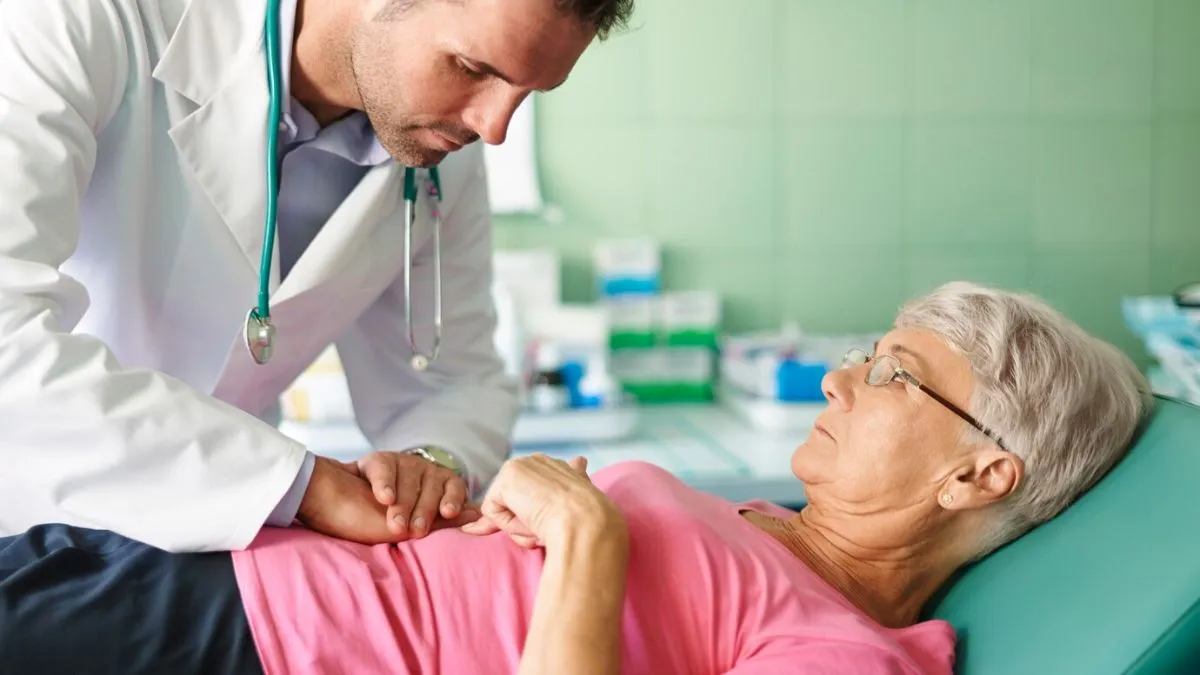
As we age, our body undergoes subtle but significant transformations many of which quietly impact vital organs like the liver. Often overshadowed by more visible health concerns, the liver’s gradual decline in function with age can go unnoticed until complications arise. For older adults, understanding how aging affects the liver, and taking proactive steps for regular monitoring is essential to safeguard long-term health.
Table of Content:-
Recent data from Apollo Hospitals’ 2025 Health of the Nation report has revealed that 65% of screened Indians have fatty liver disease, with 85% being non-alcoholic cases driven by lifestyle and metabolic factors. This silent epidemic is especially concerning for India’s rapidly growing senior population, where chronic conditions like diabetes and hypertension that are major risk factors for liver damage, are highly prevalent. As obesity and sedentary lifestyles rise, Indians develop liver disease at lower BMI thresholds than global averages. This makes early and regular liver function screening among seniors even more vital .
How the liver changes with age?
According to Dr Shabnam Mir, Consultant Physician, Medical Advisor, and Head of Clinical Services at Antara Senior Care, "The liver is an incredibly resilient organ, but like all parts of the body, it too experiences structural and functional changes over time. In older adults, the liver’s size may shrink slightly, blood flow through it tends to decrease, and its cells regenerate more slowly. These changes may seem minor, but they can reduce the liver’s overall capacity to perform its core functions which is to metabolize nutrients, break down medications, detoxify harmful substances, and produce bile for digestion."
Also Read: Can Supplement Intake Cause Liver Damage? Find Out Here
Slower metabolism, higher risk
One of the most critical age-related changes is the decline in the liver’s metabolic activity. This means that the organ processes substances particularly medications at a slower rate. Many commonly prescribed drugs, including those for blood pressure, diabetes, cholesterol, and pain management, are metabolized in the liver. As metabolism slows, these substances may linger in the body longer, increasing the risk of adverse effects or toxicity.
Additionally, aging reduces the liver’s efficiency in detoxifying harmful compounds. Combined with slower regeneration and repair, this makes the organ more vulnerable to long-term damage from alcohol, medications, or infections.
The threat of drug interactions
In older adults, polypharmacy (the simultaneous use of multiple medications) is increasingly common. Whether managing chronic conditions like hypertension, arthritis, or diabetes, or taking over-the-counter supplements for general wellness, seniors often rely on a complex cocktail of drugs. Without careful medical supervision, this can place immense strain on the liver.
Also Read: Expert Shares Why You Need To Keep Your Liver Health In Check To Keep Your Heart Healthy!
Even commonly used drugs like paracetamol, if taken regularly or at higher doses, can affect liver health. Similarly, many herbal or "natural" supplements are not as benign as they seem and may interact with prescribed medication, adding to the liver's burden. Unfortunately, signs of liver stress or dysfunction are rarely obvious until the damage has progressed, making regular liver function monitoring vital.
Hidden impacts on digestion and hormones
Another often-overlooked function of the liver is bile production which is crucial for breaking down fats and absorbing fat-soluble vitamins. Aging can impact this function, leading to digestive discomfort and poor nutrient absorption, which in turn, weakens immunity and overall vitality. The liver also plays a supporting role in hormone metabolism. In aging adults, changes in liver function can contribute to hormonal imbalances, affecting everything from sleep and mood to energy levels and bone health.
The importance of routine liver function tests
Given the silent nature of many liver-related issues, routine screenings could be life-saver. At Antara Care Homes, daily doctor rounds ensure that commonly missed signs, like fatigue, poor appetite, yellowing of skin or digestive issues, are not promptly addressed by specialists. Liver function test (LFT), a simple blood panel, can detect early signs of inflammation, damage, or inefficiency. For seniors, especially those managing chronic illnesses or on long-term medications, these tests should become a regular part of periodic health check-ups as advised by the doctor. Regular monitoring allows for early intervention whether it’s adjusting medications, modifying diet, or addressing underlying issues like fatty liver or mild fibrosis before they worsen.
How to care for the aging liver
While aging is inevitable, its impact on liver health can be minimized with the right lifestyle and medical care:
- Maintaining a balanced diet: focusing on whole grains, lean proteins, fiber, and healthy fats is important; seniors should be reducing their intake of processed foods, added sugars, and excessive salt seeing as a liver-friendly diet also supports heart and metabolic health
- Monitoring medications: One should keep an updated list of all medications and supplements and review them regularly with a healthcare provider to avoid unnecessary or duplicate prescriptions
- Staying hydrated and active: physical activity supports circulation and metabolism, both of which benefit the liver
- Limiting alcohol and self-medication: seniors are more susceptible to alcohol-related liver damage, therefore avoiding over-the-counter painkillers or supplements unless prescribed is critical
- Scheduling regular health checks: Not just waiting for symptoms to arise and working on preventive screenings help ensure early action and better outcomes
The liver may not always be top of mind in routine healthcare conversations, but its role in aging well is fundamental. For older adults, especially those navigating multiple medications or chronic conditions, proactive liver health management is a non-negotiable. With regular monitoring and thoughtful care, we can ensure this silent mainstay continues to support vitality and longevity in the years ahead.
Also watch this video
How we keep this article up to date:
We work with experts and keep a close eye on the latest in health and wellness. Whenever there is a new research or helpful information, we update our articles with accurate and useful advice.
Current Version